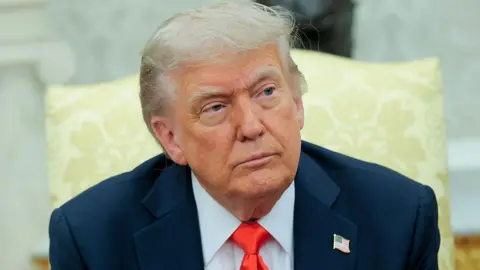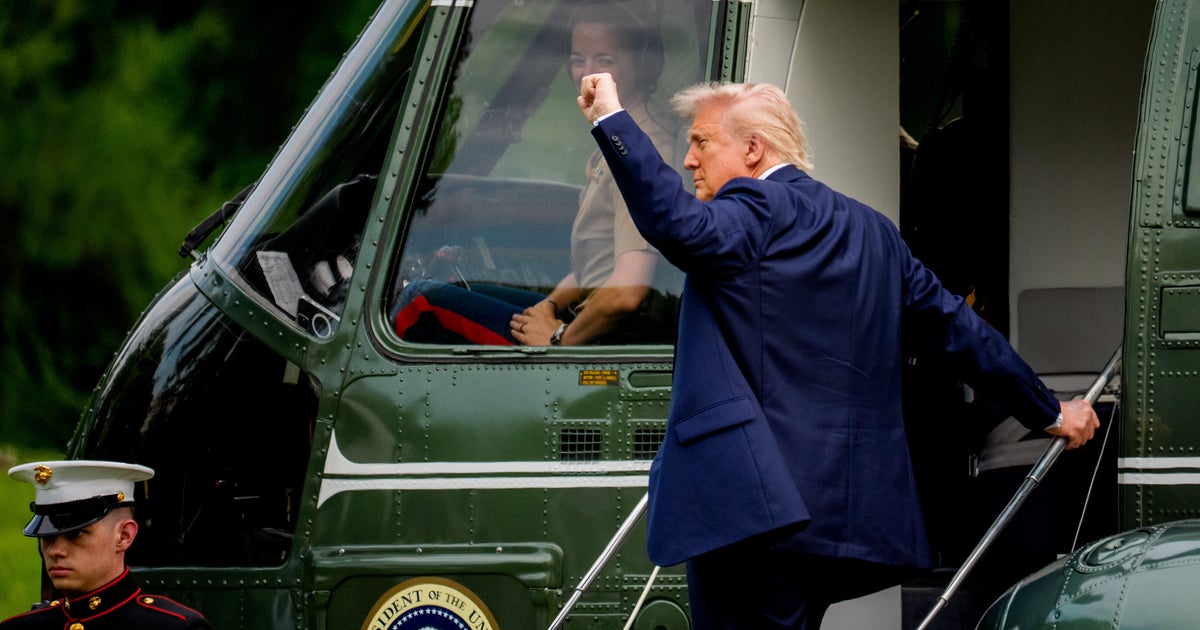Donovan Slack with reporting from Shayan Sardarizadeh & Kayleen Devlin, BBC Verify
 Getty Images
Getty ImagesPresident Donald Trump signed an order designating Antifa as a “domestic terrorist organisation” on Monday as part of efforts to crack down on the “radical left” in the wake of the assassination of conservative activist Charlie Kirk.
Terrorist group designations – normally reserved for foreign organisations – allow the administration to ban members and seize funding, among other actions.
Trump’s order directs all agencies and departments to “investigate, disrupt, and dismantle any and all illegal operations…conducted by Antifa” and its supporters.
Investigators have yet to establish a motive in Kirk’s killing and there is no evidence to suggest the murder suspect was affiliated with Antifa.
Who is Antifa?
Antifa – short for anti-fascist – is a decentralised, leftist movement that opposes far-right, racist and fascist groups that has long been a top target of Trump and other Republicans.
It is a loose, leaderless affiliation that lacks a membership list or structure, which raises questions about how Trump will actually target the group.
In a post to his Truth Social platform, the president called the group a “sick, dangerous, radical left disaster” and pledged it would be “thoroughly investigated”.
The word Antifa comes from the German word “antifaschistisch”, a reference to a German anti-fascist group from the 1930s.
While Antifa’s existence in the US dates back decades, it rose to prominence following Trump’s first election victory in 2016 and the far-right rally in Charlottesville in 2017, where various anti-fascist groups started to come together.
Since then, activists identifying with Antifa have routinely clashed with right-wing groups, both in heated arguments online and also in physical altercations across the US.
The lack of a centralised organisation means that Antifa cells tend to form organically, both online and offline, and its activists include anarchists, communists and hardline socialists who broadly share anti-government, anti-capitalist, pro-LGBTQ, and pro-immigration views.
But Antifa is sometimes used as a catch-all term by conservative politicians and commentators to include other liberal and left-wing groups that they politically object to.
Ms Leavitt said assailants linked to Antifa shot and assaulted law enforcement officers in Texas and Oregon in separate incidents in July, and she said they brought a pipe bomb to a pro-Trump event in 2022 and threatened to shoot police officers and Trump supporters outside the Florida State Capitol in 2021.
“We have seen a rise in violence, perpetuated by Antifa, radical people across this country who subscribe to this group,” she said.
Is Antifa a violent group?
Critics say what sets Antifa apart from mainstream left-wing groups is the willingness of some of its activists to use violence to further their cause, which they in turn claim is in self-defence.
Activists often dress in dark clothing and cover their faces in public. Online videos viewed by the BBC show some carrying clubs, shields, sticks and pepper spray in rallies.
In 2017, around 100 masked activists carrying Antifa-linked signs and flags attacked a group of right-wing protesters in Berkeley, California, resulting in multiple arrests.
During the unrest that erupted in the US after the killing of George Floyd in 2020, a self-proclaimed Antifa activist, 48-year-old Michael Reinoehl, shot and killed a supporter of Patriot Prayer, a Portland-area far-right group. Reinoehl was subsequently shot dead by police.
Why is Trump targeting Antifa?
At the White House, the press secretary said the designation would fulfil one of Trump’s campaign promises.
The president said in 2020 that he would declare Antifa a terrorist organisation but didn’t follow through.
His latest intervention comes as part of a wider campaign against the “radical left” following the Charlie Kirk killing, with the president declaring that: “Radical left political violence has hurt too many innocent people and taken too many lives.”
The authorities have said that Tyler Robinson – who is accused of Kirk’s murder – had a “leftist ideology” but have not provided much detail and he has not been directly linked to Antifa.
The US government can classify a group a Foreign Terror Organisation but the legal criteria states that the group “must be a foreign organisation”.
Designating a group a FTO means members can be banned or removed from the country and gives the US authority to seize funding and target donors. But it is unclear how the White House plans to exercise these powers in targeting Antifa.
Additional reporting by Mike Wendling, Matt Murphy and Lucy Gilder
Source link


